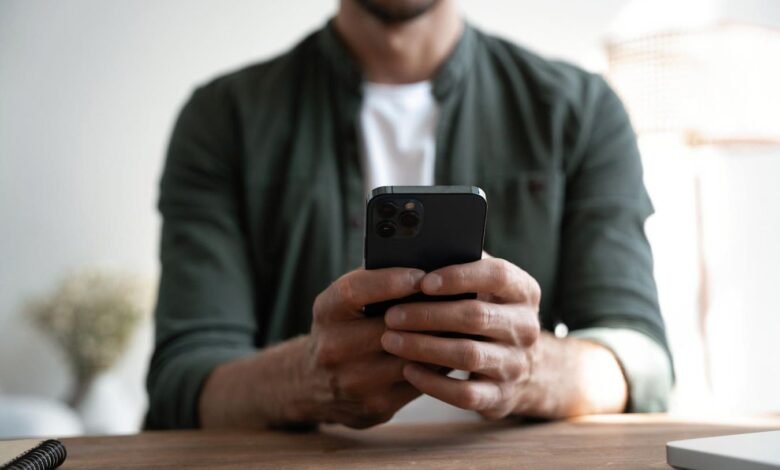First It Was The Thumbs Up Emoji, Now ‘Sure’ Is Considered Rude On Social Media

Man pointing on smartphone screen, chatting in social networks, meeting website, searching internet, … [+]
This one hits a little too close to home for me.
Recently, I heard a report on a local radio station that saying “sure” is considered dismissive, either by text, on social media, or in real life. The original radio report from New York also mentioned a comedian who posted on her Twitter about the one-word “sure” response. Here’s the post:
Being short in a response like that can reveal an attitude, that you are distracted or not wanting to dialogue with someone. It can be a way to cut the conversation short.
I am guilty as charged on this one. I sometimes say “sure” in a way that sounds dismissive, likely because I am already looking at something on my phone. While I wasn’t a fan of the proclamations about using the thumbs-up emoji being rude last year, I do feel saying “sure” can be rude, depending on the situation or the topic at hand.
Here’s an example of how this comes up on a daily basis — in real life and on social media (especially on Facebook). Let’s say your spouse sends you a detailed note on Facebook Messenger, explaining dinner plans and who is coming over. There’s a story to tell, and it’s an invitation to dialogue and come up with a plan. Responding to a long message like that by saying ”sure” is dismissive because the sender is looking for a longer response.
Another example: You see a Facebook post asking a question to her followers about the next political season or something going on in the world. The question at the end of the post might simply be a way to start a discussion, such as “Do you think this is an important issue?” Responding with “sure” would be dismissive because that’s not what the sender wanted.
Of course, it’s easy to take this too far. If you receive a text or a chat message that asks a more direct question about, for example, watching a movie, saying “sure” might be appropriate. I can see why doing a thumbs-up emoji or saying “sure” could be easily misinterpreted, because we live in an age when phubbing (e.g., phone snubbing) has become the norm. We are partially paying attention to everything these days, so saying “sure” is a red flag. It reinforces the idea that we have something more interesting we are looking at or “researching” on our phones.
What this means is that the way we communicate is changing, and what used to be fine and even expected has shifted. It’s important to know the context. If saying “sure” or clicking the thumbs-up on Facebook shows that you are not wanting to discuss a topic, it’s better to explain your opinion a little more. “Hey, I don’t have time to talk about dinner plans right now, can we discuss it a bit later?” would be a much better reply. For that Facebook post about politics or world events, it might be better to not respond at all than to comment so briefly.
There are new rules of discourse emerging. At one time, clicking the thumbs-up on Facebook and in other apps was a show of support — it meant something. These days, it doesn’t really mean anything other than you are busy and don’t want to elaborate.
Do you agree with these new rules? I’d love to hear from you. As usual, when I post about this topic on social media, hopefully at least one person just answers sure.
Source link




